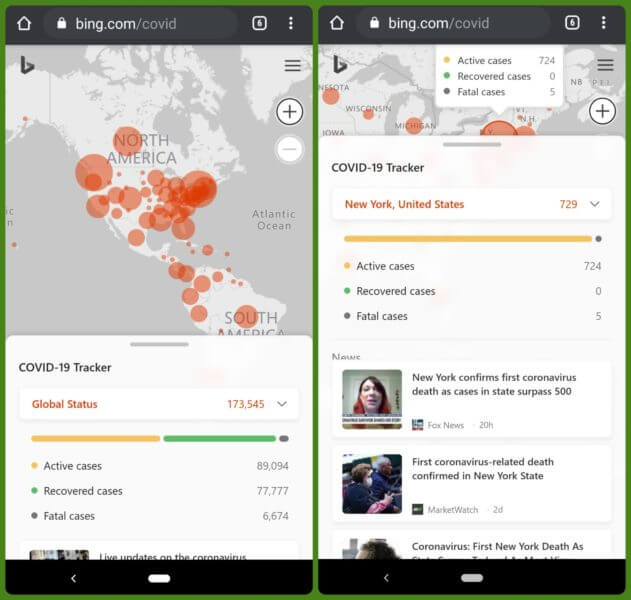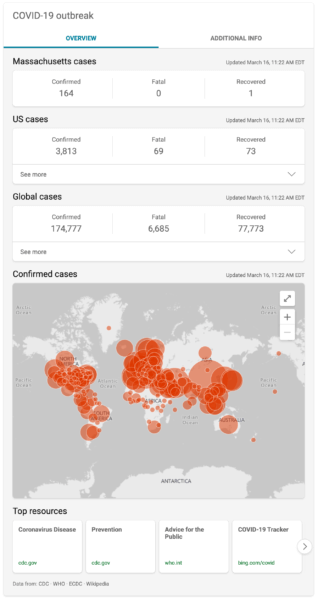
‘Coronavirus’ results pages have become ad-free resource hubs on Bing, Google and other search engines.
Bing has launched a COVID-19 tracker that displays the number of confirmed cases worldwide. The data is broken down into active, recovered and fatal cases, and can be filtered by geographic region, The Next Web first reported on Monday.
Selecting a region will also show users recent news and video pertinent to the situation in that region.
Why we care
Bing and other search engines have transformed their results pages into non-commercialized resource hubs for people looking for “coronavirus” information.
Google has also added an SOS Alert, “Safety tips,” and “Affected area” rich result boxes to its “coronavirus” results page. Re-tooling search results pages into ad-free resource hubs that surface data from various official sources, present recent news, videos and interactive maps is common during times of crisis.
 More on the news
More on the news
- Bing’s COVID tracker sources data from the U.S. Centers for Disease Control and Prevention (CDC), the World Health Organization (WHO), the European Centre for Disease Prevention and Control (ECDC), and Wikipedia. Users can see when the data was last updated by clicking the information icon in the sidebar menu.
- Alphabet-company Verily has launched a COVID-19 screening tool that is currently limited to Santa Clara and San Mateo county residents in California. The tool is expected to receive a wider roll out over time.
- Google is also showing which local businesses are “temporarily closed” in Search and Maps, and displaying a pop-up on the YouTube homepage that directs users to the CDC’s COVID-19 page.
- A number of other publications and health organizations have launched their own COVID-19 trackers, including the New York Times, John Hopkins University and the World Health Organization.

